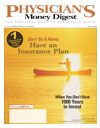Fuel Prices Affect Presidential Approval
BusinessWeek
Washington Post
If you're a physician who's old enoughto have been affected by the energy crisisof the early 1970s, then you may recall notbeing too fond of President Nixon's jobperformance at the time. You definitelyweren't alone. In fact, points out that since those fuel-starveddays, whenever energy prices see a sharpincrease, presidential approval ratingsplummet. Recently, President Bush, whilenot the most popular president to beginwith, has seen his popularity dip noticeablywhenever gas prices jump for morethan a month. As of May 15, 2006,President Bush's approval rating was at ameager 33% (-ABC Newspoll), while the national average gasolineprice was at an extravagant $2.947 pergallon. While energy costs aren't the onlycontributing factor to his low approval, thecorrelation between prices and popularitystill exists, as it has from Nixon to Clinton.Also, unfortunately for President Bush, historyshows that when fuel prices are highfor incumbents, falling prices don't automaticallylead to higher approval ratings.
